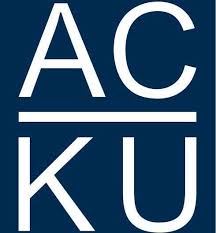Afghan election, 2010 : alternative narratives / Noah Coburn.
Material type: TextPublication details: Kabul : Afghanistan Research and Evaluation Unit, 2010.Description: 9 p. ; 28 cmSubject(s): DDC classification:
TextPublication details: Kabul : Afghanistan Research and Evaluation Unit, 2010.Description: 9 p. ; 28 cmSubject(s): DDC classification: - Pamphlet JQ 1769 .A5 .C63 /2010/ + /PDF/(230KB)
| Item type | Current library | Call number | Copy number | Status | Date due | Barcode | Item holds | |
|---|---|---|---|---|---|---|---|---|
 Monograph
Monograph
|
Afghanistan Centre at Kabul University | Available | 3ACKU000386259 | |||||
 Books
Books
|
Afghanistan Centre at Kabul University | Available | 21407 | |||||
 Books
Books
|
Afghanistan Centre at Kabul University | Pamphlet JQ 1769 .A5 .C63 /2010/ + /PDF/(230KB) (Browse shelf(Opens below)) | 3 | Available | 21405 |
Cover title.
“September 2010”.
Includes bibliographical references.
“Afghanistan Research and Evaluation Unit”—at head of title.
Summary: “In the context of deteriorating security and following widely controversial elections in 2009, Afghan voters returning to the polls for the Wolesi Jirga election on 18 September will be asked to pass judgment on serious political issues at both the national and local levels. The international press has been widely concerned with how fraud and insurgency may delegitimise the election, but for most Afghans this has been only half of the story. Pre-election reports in the media have not considered deeply enough the way in which the election is part of a continual process of reshaping politics in the context of instability in Afghanistan.1 More than 2,500 candidates are campaigning in the lead-up to the election for 249 parliamentary seats, in province-wide voting with each province represented by between two and 33 members of parliament (MPs), based upon population.2 With seats in parliament being perceived as lucrative for both individuals and the communities they represent, this has led to an active campaign period, with thousands of competing posters and television advertisements. It has also led to serious debate, however, among voters and candidates over the current political dissatisfaction and the future of Afghanistan. This paper provides a brief outline into the alternative but fundamental narratives that were being voiced and heard by Afghans in the run-up to the election. It is based on qualitative research on constituent perspectives on elections, undertaken in Kabul, Balkh and Paktia since January 2010”—(p. 2).
